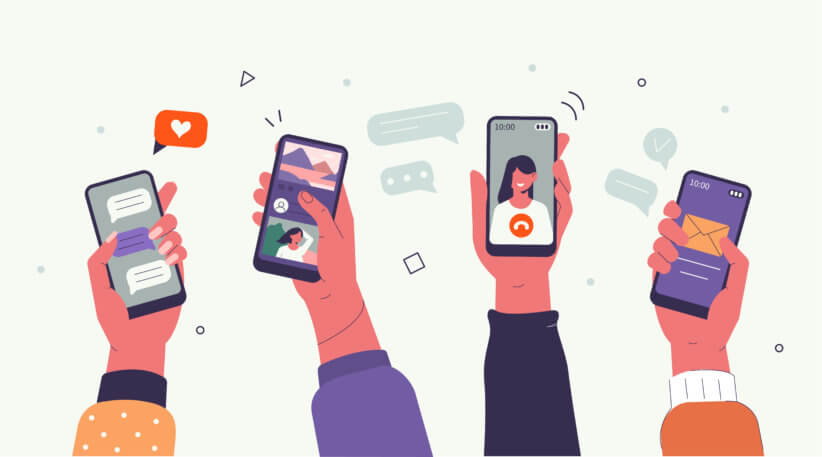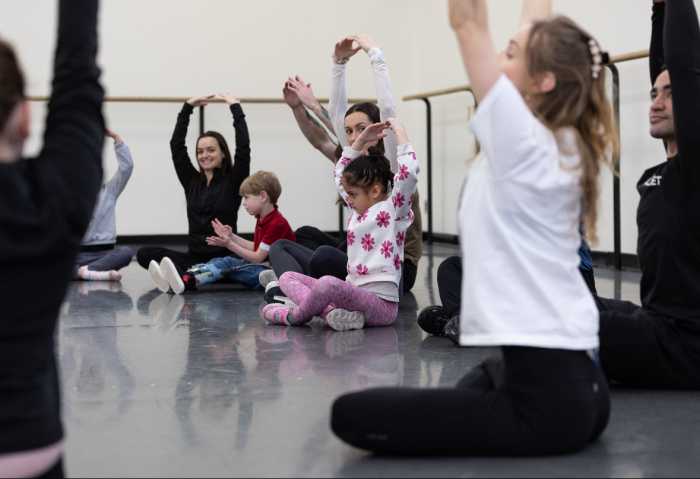
An Expert Weighs in on Effects of Children Using Social Media
As parents it seems like children using social media platforms is just another inevitable bridge that will be crossed in their lives, but that doesn’t mean that we don’t still question when the right time might be. How young is too young to allow them on social media? Could there be too many negative affects on their mental health? I chatted with Dr. Nusheen Ameenuddin, chair of the American Academy of Pediatrics Council on Children and Media, to help answer common questions while also giving tips on what parents should look out for.
It seems like many children are starting to use social media in their daily lives at a young age (even my little sister has been watching Youtube on her IPad since she was about 1 and a half). How much has social media and technology consumption changed over the last few years with kids?
Kids and especially adolescents have been very active consumers of social media. With the pandemic, we saw media and device use increase even more among kids who often used it as a way to stay connected to friends and even older relatives who might have been less able to be out and about.
Technically, because many social media platforms collect information on users, kids under 13 are not technically allowed to be on certain platforms, but unfortunately there are ways to get around that and the tech companies have been very poor enforcers of rules to keep kids safe.
Social media can have advantages and disadvantages for users, so much of what teenagers take from it depends on how they’re using it and why. For example, teens who are using social media platforms to share their art might find that a very positive way to express themselves and get feedback, but a teenager who is using social media to compare their lives, their possessions and other things to friends or celebrities might come away feeling very unhappy.
What are some of the dangers that parents should be aware of before allowing their children to use social media?
It’s important for parents to understand that even though these platforms offer some tangible benefits that allow kids to connect with like-minded peers and even find support if they are part of marginalized communities, there are dangers in the amount of information that is collected without children’s knowledge, the way that information is used to target advertising toward them and keep them engaged.
There are also dangers in children and teenagers sharing too much information which can make it easy for unscrupulous individuals or companies to find them.
There’s also the very real danger of FOMO, or a fear of missing out, which can lead kids to feel like they always have to be connected and can come at the detriment of their sleep, physical and mental health as well as academic performance.
Many adults know first hand that once you’re on social media, it tends to be a constant for the rest of your life. How could the use of social media have a negative effect on kids both during their development and once they are older?
It’s very difficult to unplug, especially once being constantly online becomes part of one’s daily life. Parents can help by trying to set a good example and setting screen free zones and times in the home like at dinner time and by keeping screens out of bedrooms as well as having a time before bed where all devices are turned off.
When kids are online all the time or if they feel pressure to be online all the time, it can take away from face-to-face that’s important among family members, friends from school, physical activity like sports and other activities that can help develop a child’s interests and help them grow into creative, productive young adults.
Of course there can be some positives of social media and technology. Do you have any tips on how parents can navigate the social media world with their kids when the time is right?
I always recommend that Parents engage with social media along with their children and set some basic ground rules. When children are younger, I recommend that parents have full access to their account to help them monitor interactions and ensure that children are getting a balance of online time as well as off-line time while also making sure that they are sleep, mental health and school work do not suffer.
As children get older and are able to handle more responsibility, parents can gradually start to step back to allow more independence while still setting up some guidelines that children are expected to adhere to like screen free times and zones in the home.
If parents are trying to get kids to cut down their social media use, what are some ways or ideas they should try?
I think that parents can set a good example. If they’re asking children to reduce their media and device use, parents need to show that they are willing to do the same. Setting an example goes a long way to getting buying from your child and families might be surprised by how much more time they have to enjoy each other‘s company.
I also think that it’s important to do everything in moderation. Set aside some time designated for social media connection but plan additional activities that will engage your child once that time is over.
Do you have any other tips you would like to give?
The main point I want Parents to understand is that there needs to be balance and everything. It’s not realistic to completely cut children off technology, but it does make a difference when people set some basic ground rules, even if they can’t enforce them 100%.
Parents also need to be aware of warning signs if social media is eating into their child’s sleep time, performance at school or if they are noticing changes in behavior. I think that being open and proactive and involved with kids as they start to get involved in social media is also critical to modeling and guiding children to deal with challenges they may face.
Psst… Check out Why STEM & STEAM Matters: An Expert Tells Us Why













